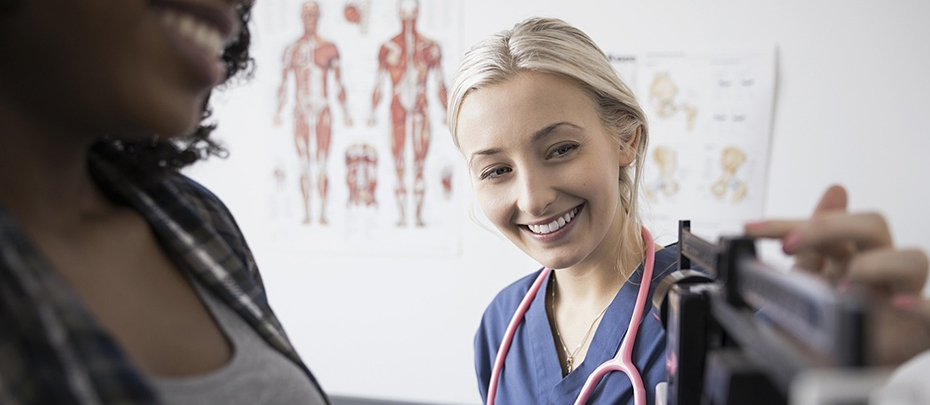Potential Pitfalls
While many of the healthcare providers in the room pointed out the benefits of BMI, they also understood the limitations.
"Some of the problems with BMI are that health varies so greatly from person to person with the same BMI, and the score doesn't take into account people with different body composition or fat to muscle ratio, like cancer survivors or bodybuilders," said Dr. Prado.
"As athletes, we always have a higher BMI because our muscle weight tips the scales," explained Sharon Monplaisir, a three-time Olympic fencer for the United States.
These nuances underline the importance of finding alternative ways to assess where people fall on the health spectrum.
Muscle Mass
The conversation turned to the important ways in which muscle factors into health, such as mobility and balance, strength, immunity and wound healing.
"We tend to focus on these arbitrary numbers, instead of behaviors," said Mary Jane Detroyer, a registered dietitian and personal trainer. "For example, if you don't have muscle mass, you can't get out of a chair," she explained.
Suzette Pereira, Ph.D., a researcher at Abbott added, "Once you turn 40, you can lose up to eight percent of your muscle each year. Maintaining muscle is really important for movement and for metabolism."
The experts agreed that muscle can be a good indicator of health status since it correlates with quality of life. But, how can a physician measure indicators of muscle health in a simple way?
Gait Speed
There are several ways to measure a person’s muscle mass, including MRIs, DEXA scans and portable ultrasounds. Yet something as simple as looking at someone's walking speed also known as gait speed may be able to give physicians some insight.
"Gait speed, or how fast you can walk for a fixed time, is a strong indicator of people's health," Pereira explained. Research suggests that gait speed can help predict negative health outcomes and has even been associated with life expectancy in older adults. Performing a test to measure walking speed over a short distance could be an effective way to establish health status. Another indicator of muscle health is gauging a person’s ability to rise from a chair without using their hands for assistance.
Heather Milton, senior exercise physiologist at the Sports Performance Center at NYU Langone Health, suggests asking patients if they move regularly or are physically active to get an idea of how they're feeling. "Those are simple questions that can be asked by a physician, regardless of BMI," she added.
Beyond Numbers
The group stressed the need for a comprehensive perspective on health.
"When working with patients, I look at them as a whole, including family history, genetics and other variables," said Dr. Bond. Dr. Donna-Marie Manasseh, Director and Chief of Breast Surgery at Maimonides Breast Cancer Center agreed. "In the end, assessing health status requires a scorecard that includes a range of things that are easy to measure."
The Bottom Line
How do we define health? While there is no perfect measurement, multiple tools can work together to provide doctors and individuals with the most comprehensive information.
Pereira added an important takeaway: " We must continue to challenge the status quo and look at health from every possible angle, including addressing the importance of muscle health."




Social Share